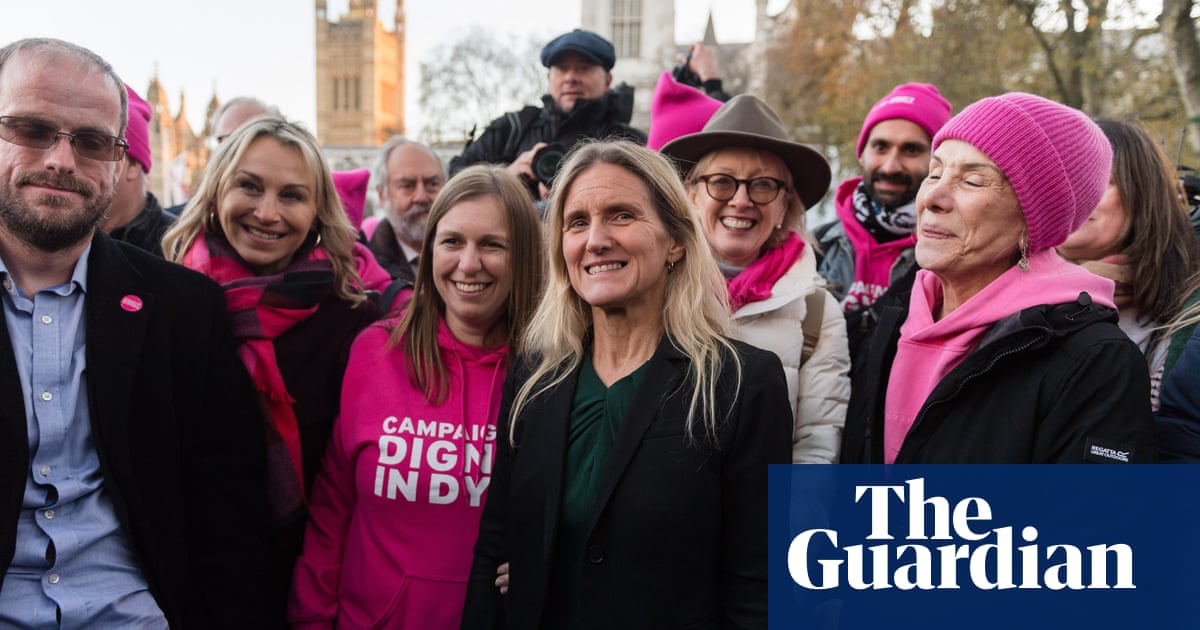Doctors are preparing to speak out against changes to the proposed assisted dying law that could ban physicians from raising the procedures with patients.
The British Medical Association, which will give evidence to a committee of MPs scrutinising Kim Leadbeater’s private member’s bill, has said doctors must be allowed to raise assisted dying sensitively with patients if it becomes law.
The BMA said it would be “an unacceptable intrusion of legislation into the privacy of the consulting room”.
The Guardian has previously reported that up to 30 MPs who backed assisted dying could withdraw their support at the next parliamentary vote. At the top of MPs’ demands for change is that the bill should not permit medical professionals to suggest assisted dying to terminally ill patients.
MPs, including the former cabinet minister David Davis and the Labour MPs Chris Webb and Mike Tapp – who voted for the bill – have asked the committee to consider making this change. A source close to the committee said it was likely to be one of the first amendments considered by the committee in February once they had finished taking public evidence.
MPs scrutinising assisted dying legislation will have three full days in the final week of January to hear public evidence from health and ethics experts and begin to explore a range of possible amendment. The committee will then meet twice weekly for public scrutiny sessions of the bill until the last week of April.
The BMA’s official position is neutral on whether assisted dying should pass – but the union has agreed a collective position that doctors should not be put in the position where they are barred from raising it with patients.
Dr Andrew Green, the chair of the BMA’s medical ethics committee which leads on assisted dying, said that barring doctors from raising the option with patients would put unprecedented legal restriction on doctors – though said no doctor should be obligated to mention the procedure.
“After careful debate, we did conclude that there should be no requirement on doctors to raise the subject, but equally, they should be able to do so sensitively when they thought it was in the best interest of their patients,” he told the Guardian.
“Some patients do find it difficult to bring up sensitive subjects in their consultations, and doctors are skilled at reading between the lines of what patients say and working out what has been left unsaid.
“In such circumstances, a skilled doctor would gently open the door to those conversations, allowing the patient to walk through into a safe space where they can discuss what’s on their mind. The amendment under discussion would result in a lock being put on that door to effective communication. And we feel it would be an unacceptable intrusion of legislation into the privacy of the consulting room.”
Green said that he would not anticipate that assisted dying would ever be directly recommended to patients and that doctors would continued to be bound by the code of ethics. The BMA is expected to be among the organisations called to give evidence to the committee on the last week in January.
The next Commons debate and vote is expected to be on April 25 – and should time allow, the bill may also get to its final Commons stage that day.
If the time limit is reached, the final stage of third reading would take place on the next sitting Friday, about a fortnight later. Proponents of the bill are hopeful it will start its consideration in the Lords before the summer.
The bill’s committee will have nine MPs who were opponents of the bill, including its most high-profile Conservative opponent, Danny Kruger, and 11 MPs who were in favour.
The health minister Stephen Kinnock and the justice minister Sarah Sackman will be on the bill committee for its next stage in parliament. They voted in favour of the bill. Along with Leadbeater, that makes the committee balanced 14-9 in favour, a 60% majority.











